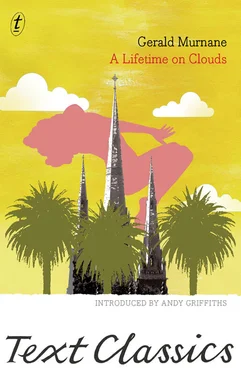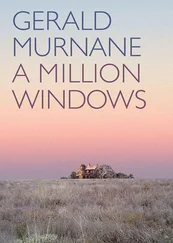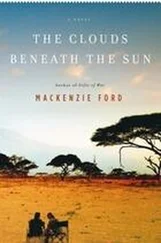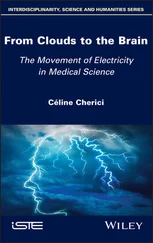Mr McAloon aimed his words at Adrian. ‘I don’t know how much your father has told you about the world yet, young fellow. But if you’re going to grow up a responsible Catholic layman it’s time you realised this country has never been in worse danger. I don’t know how you city people survive with all those trashy books and films. And what about the spread of Communism?
‘The only safe place to bring up a family nowadays is somewhere like Mary’s Mount. You’ll find in a few years there’ll be thousands of Catholic families getting back to the land and cutting themselves off from the city altogether. If anything can save Australia the move back to the land can do it. Closer settlement. We haven’t got much time left. The experts reckon by 1970 at the latest the whole of Asia will have gone Communist. We need a population of at least 30 to 40 million to defend ourselves. You can see what the Communists are doing right now in the jungles of Malaya. Well, people like the settlers at Mary’s Mount are doing something about it.’
It was early afternoon, but the hills were so steep that the road between them was deep in shadow. Mr McAloon said, ‘I think the time I admired them most was when the Bishop of Ballarat refused to give them one of his priests to live on the settlement as their chaplain. Well, some of the leading families fixed up some tarpaulins and made a sort of covered wagon and loaded some tents and blankets on pack-horses and started off walking and riding from Mary’s Mount to Ballarat.
‘I forget how many days it took them, but they got there and drove their wagon up the driveway of the Bishop’s Palace and squatted right there on the lawn. Now don’t get me wrong. They’re fine folk. It’s just that they’re influenced by the customs of Catholic Europe. They don’t seem to care what ordinary Australians think of them. Some of the men wear their hair down over their collars, and one fellow who used to belong to the university has a bushy black beard. And I heard they had some home-made wine in their wagon and they started drinking the stuff on the Bishop’s lawn and handing round pieces of rather ripe cheese on the end of a knife. And Doctor Ray D’Astoli (he’s a talented man, Ray — gave up a wealthy practice in Melbourne to go back to the land), Ray D’Astoli rang the bell and said, “The Catholic farmers of Mary’s Mount within this diocese are come to wait upon the pleasure of His Grace, the Bishop, and crave audience with him.”
‘Those were the very words he used. He’s a wonderfully clever man, Ray. And the young priest who opened the door got all hot and bothered and didn’t know how to answer him. And they say the Bishop himself peeped through the curtains upstairs and thought a tribe of gypsies had descended on him. In fact the police in Colac went down to the camping ground when they were passing through because someone actually rang up and said the gypsies or some escaped lunatics had come to town.’
Adrian said, ‘And did they get their priest?’
‘Unfortunately, no. It’s a long story and some of it’s not for young ears. (Mr McAloon glanced at his sons.) You’ll see for yourself when we get to the Mount the single men and women have their own separate dormitories at least a hundred yards apart with all the married couples in between. But some people — even Catholics, I’m sorry to say — some people love to spread scandal and gossip whenever they see young men and women living up to ideals too high for themselves to match. More than that I’m not prepared to say. The Bishop didn’t want one of his priests serving a community with even the faintest breath of scandal about it. And so Mary’s Mount only has a mass in the chapel when a young priest comes down from Melbourne — he’s a brother of one of the founders of the settlement.’
Mary’s Mount was on the side of a hill so steep that the driveway for cars stopped half-way up. The McAloons and Adrian walked up a footpath with logs set into the slippery soil for steps. They passed small timber cottages that reminded Adrian of the illustrations in Heidi.
Mr McAloon stopped at a long building like a barn and asked a man was Brian O’Sullivan at home. The man led them inside. Mr McAloon whispered to Adrian, ‘The single men’s quarters — laid out like the dormitory of a Cistercian monastery — marvellous stuff.’
Ten little alcoves opened off a central passage. O’Sullivan came out of his alcove and took them inside. He and Mr McAloon sat on the bed — a camp stretcher covered with army blankets. Adrian and his cousins sat on stools cut from logs with globules of amber sap still stuck to their wounds.
O’Sullivan said, ‘I spent the morning weeding potatoes, and now I’ve been reading St Thomas Aquinas.’
He held up a large volume entitled Summa Theologica. ‘You know what we say up here at the Mount? “A man know’s he’s living well when he gets callouses of equal sizes on his knees and hands and backside.” It means he’s been kneeling in the chapel and working on the farm and reading in the library — all in equal proportions.’ Mr McAloon laughed loudly.
When the men started talking about the potato crop, Adrian asked could he visit the chapel. The McAloon boys took him outside and further up the hillside. The chapel walls were of logs with the bark still on them. The seats inside were of unvarnished timber, but the altar and tabernacle were the real thing — polished wood draped with starched linen and coloured silk. And in the tiny sacristy Adrian opened the drawers of the cupboard and saw a coloured chasuble in each. While Adrian fingered the vestments, Gerard McAloon said he thought some clever women from the Mount had made them all with their own hands. There was supposed to be one lady who spent her whole time washing and ironing them and dusting the chapel and polishing the sacred vessels ready for the day when the community would have its own priest to say mass there every morning.
Adrian shut the drawers and stood still. Leaves were scraping against the chapel roof. A blue-green bull-ant wandered across the well-scrubbed floorboards. Specks of dust drifted in and out of a thin shaft of sunlight.
Denise was still beside him (although he had almost forgotten her in the excitement of visiting Mary’s Mount). He led her out of the chapel and pointed out to her the beauty of it all — the cottages half-hidden among the trees, the rows of green potato plants in the rich red soil, the little sawmill with its heaps of pale-yellow sawdust — and whispered to her, ‘How could we think of bringing up our children near Hepburn Springs when we could have them all here protected from the world with our own chapel on the property?’
Back in the single men’s quarters, Mr O’Sullivan said, ‘I tried my hand at baking bread yesterday. It’s not too bad.’ He gave them each a piece spread with soft butter from a billy-can. Adrian’s piece tasted like a salted scone, but he finished it out of politeness.
On the way home Adrian asked his uncle whether the McAloon family might settle at Mary’s Mount one day.
Mr McAloon said, ‘Don’t think I haven’t given it a lot of thought. The only thing that stops me is I’d like to wait a bit longer and see what sort of farmers they turn out to be. Last year they lost a lot of money on potatoes through planting them at the wrong time. And they can’t sell any milk or cream because they won’t make their dairy conform to health standards. They should manage to be self-supporting in a few years, but they’ll always need some ready cash to pay for the little extras they can’t make themselves — like trucks and generators and machinery and rainwater tanks and cement and stuff.’
Adrian said, ‘And books?’
‘Yes, books too. But just quietly I think some of those university chaps ought to spend a bit more time dirtying their white hands with work and a bit less time with their books.’
Читать дальше












